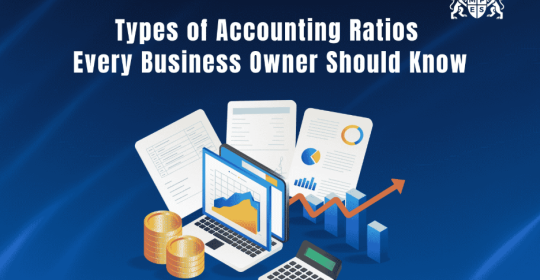Once you’ve created your CV, scoured the job boards, and sourced your references, the last thing you expect to face is an advert for a vacancy that doesn’t exist. Unfortunately, the last few years have seen a spike in fake and scam job adverts. This was further exacerbated by the Covid-19 lockdowns and restrictions, which scammers took full advantage of. It isn’t all bad news though. The job market is healthy and there are plenty of ways to spot a fake or scam job advert.
ARE ALL FAKE JOB ADVERTS A SCAM?
This depends on what you mean by ‘scam’. The dictionary definition of scam is a dishonest scheme or a fraud. Separating fake job adverts from scam job adverts is difficult because although there may not be criminal intent behind posting an advert for a job that doesn’t exist, there is still an obvious level of deceit involved.
There are two main reasons that someone would post a job advert that is either fake or a scam, or both. The first is to steal something from you, whether that is your personal information, your bank details, or money. The second is to build a mailing list or pool of contacts for the purposes of future recruitment. Whichever of these reasons is true, applying for a fake or scam job advert is a waste of your time, hope, and effort.
WHAT TYPE OF JOBS APPEAR IN FAKE OR SCAM ADVERTS?
The type of jobs that appear in fake or scam adverts vary depending on the intent of the company or individual who places the advert, which can make it all the more difficult to spot.
For companies simply wishing to gather CVs and contacts for future recruitment purposes, the jobs advertised could be any role within their company. Generally, however, the jobs won’t be senior management roles.
Work from home scams feature widely in fake and scam job adverts. This avoids the need to interview in person and keeps the recruitment process altogether more distant. Typical jobs featured in scam adverts include:
- selling luxury merchandise
- data entry
- envelope stuffing
- assembling products
HOW TO SPOT A FAKE OR SCAM JOB ADVERT
So how can you tell if a job advert is genuine? There are four stages in the job search process where you should check for the tell-tale signs of a fake or scam job advert. These are:
When you first become aware of the job advert
How did you hear about the job? Was it through a genuine job site, on social media, by a direct message on LinkedIn, or in an email from a previously unknown recruiter or company?
If you found the job advert on a job board or through the website of a recruitment company, then there’s a good chance that the advert is genuine. However, more investigation is required to make sure.
If you saw the job advertised on a company’s social media channels, the likelihood that this is fake or a scam is totally reliant on the employer. Is this a genuine company? One good way to find out is to look for an online presence beyond social media, such as a website and a registered address. You might also like to check whether the company is registered with Companies House.
If you received a direct message from a recruiter or other individual, handle with care. It’s common practice for recruiters to send direct messages to people they are already connected to on LinkedIn or request a connection and attach a message. Unfortunately, this also makes it easy for scammers to pose as recruiters and drop you a line.
If you receive an email from someone who claims to be recruiting, do not click on any of the links without checking them first. Hover over the link to find out whether its destination matches with the URL it claims to lead to. Have a look at the email address of the sender. Does it look like a genuine company email, for instance, johnsmith@harringtons.co.uk, or is it a string of numbers and letters and possibly a Gmail, Hotmail, or Outlook account, like this, 4aps22@gmail.com? Is the email well-written or full of spelling mistakes and typos?
Reading the job advert
If you haven’t noticed any signs of fakery or a scam so far, the next stage is to check the job advert. Here are the main things to look out for:
- spelling mistakes and typos
- a job opportunity that seems too good to be true
- a personal email address, for instance via Gmail or Outlook, instead of a company email
- no mention of company website
- a vague description that leaves it unclear what the job is or entails
- any request for money or bank details
- the claim that no experience is required
If the job advert checks out, or only one of the above is evident, the next step is to research the company.
Investigating the employer
Researching any job you apply for and prospective employer is always recommended but especially so if you’re checking for authenticity.
Have a look for the company’s website and social media accounts. Does the job advert match with the employer’s general online presence? Is the job advertised on their website or social media? Does the email address of the recruiter or the contact details in the advert match with the company website?
For more on this, read 5 ways to research an employer before your interview.
After you show interest in the job advert
All seems good so far. The way in which you became aware of the job advert feels genuine. The job advert itself looks good. Even the employer checks out. At this point, you may feel comfortable enough to lower your guard but there’s one more way to check whether this is a fake or scam job advert. What happens when you apply for the job?
If you experience any of the following responses, the job advert is probably a scam:
- You are asked to supply your bank details before you’ve landed the job.
- You are asked to pay for checks as part of a screening process.
- You are asked to hand over your passport or driving licence.
- You are asked to pay a membership fee so that you can access products, resources, or a website.
- You are asked to call premium rate telephone numbers and are left on hold for ages.
- You are invited to interview by messaging app. Generally, an interview will take place in person or by video-call.
- You are asked to buy start-up products or equipment from the company. While this is common practice for MLM companies like Avon, Usborne, and Oriflame, it’s worth investigating whether the company is genuine before you part with your money. It’s also recommended that you consider whether you can afford to spend money first so that you can earn an income later.
- You have a bad feeling about the job advert and the people behind it.
By the way, did you know that you can protect yourself from identity theft by being careful about what you include in your CV? To find out more, read the CV Squads article What to avoid on your CV.
FINAL THOUGHTS
The key to avoiding fake or scam job adverts is to use reputable sources of jobs like JobLookup, to thoroughly scan job adverts for red flags, fully research prospective employers, and to always listen to your gut.






